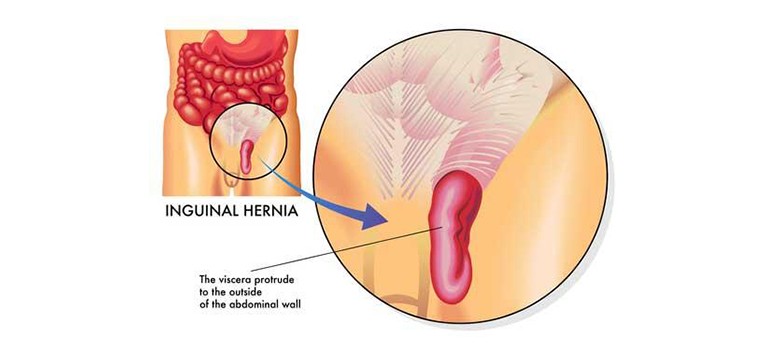An inguinal hernia takes place when soft tissue tends to protrude through a weak portion of the abdominal muscles. This soft tissue could either be part of the intestine or part of the membrane that lines the abdominal cavity (omentum). What results is a bulge which tends to be fairly painful when you bend over, cough or lift a heavy object. According to research, men are 10 times more likely to develop an inguinal hernia than a woman. Let’s explore why.
Risk Factors involving inguinal hernia
There are several risk factors involving inguinal hernias. These are as follows:
You are male
As mentioned above, men are far more likely to develop an inguinal hernia than women. It has been found that the vast majority of newborn babies and children who develop inguinal hernias are also male. This is mainly because of the way their testicles form, move down from the inguinal canal and create gaps in the abdominal muscle after birth.
You have a family history
If you have a close relative, like a sibling or a parent, who has had inguinal hernia before, the chances of getting yourself are quite high.
You are prone to certain medical conditions
If you have certain medical conditions like cystic fibrosis, a life-threatening disease that causes chronic cough and severe lung damage, you may be more likely to develop an inguinal hernia.
You have a chronic cough
Your chances of getting a inguinal hernia increases if you suffer from a chronic cough, such as from the after effects of smoking.
You suffer from chronic constipation
Inguinal hernias are also commonly caused by excessive straining during bowel movements.
You are overweight
If you are overweight, it tends to put extra pressure on your abdomen, thereby putting you at risk of an inguinal hernia.
You are pregnant
Sometimes, pregnancy can weaken a woman’s abdominal muscles, causing added pressure inside her abdomen, thereby leading to inguinal hernia.
You perform hard labour
There are certain occupations that make people susceptible to inguinal hernias, such as ones that involve standing for long periods or doing heavy physical labour.
You have an infant that has been prematurely born
If your baby has been born prematurely, they may be at risk to have inguinal hernias.
You have a personal history of hernias
If you have suffered from an inguinal hernia in the past, it is very likely that you will eventually develop another. This usually happens on the opposite side.
Symptoms of inguinal hernia
Sometimes, you won’t even know that you have an inguinal hernia because of the fact that they don’t show any majorly apparent symptoms. Only when your doctor conducts a routine physical examination, will you find that you are suffering from this condition. There are times however, when you might notice or feel a bulge that has been created by the hernia. If you cough, strain or stand upright, the bulge is more apparently noticeable.
There are many common symptoms and signs of inguinal hernias. They are:
A bulge on either side of the pubic bone
A heaviness or a dragging sensation in the groin
Mild to moderate discomfort or pain in the groin, especially when coughing, bending over, or lifting heavy weights
A gurgling, burning, or aching sensation at the area of the bulge
Pressure or weakness in the groin
Occasional swelling and pain around the testicles at the area that the protruding intestine descends into the scrotum.




